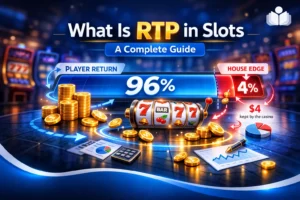Copyright Carter McNamara, Authenticity Consulting, LLC
Sections of This Topic Include
- How to Overcome Test Anxiety
- How to Prepare for a Test
- Test-Taking Strategies in General
- How to Pass Multiple-Choice Tests
- How to pass the True-False Test
- How to Pass Matching Tests
- How to Write Essays (Long Answers)
- How to Pass Short-Answer Tests
Also, consider
- Concentration
- Creative Thinking
- Critical Thinking
- How to Study
- Learning Style Inventory
- Memorizing
- Mindfulness
- Mindsets
- Motivating Yourself
- Reading Skills
- Reframing
- Systems Thinking
- Strategic Thinking
- Writing Skills
Learn More in the Library’s Blogs Related to Personal Development
In addition to the articles on this current page, also see the following blogs that have posts related to Personal Development. Scan down the blog’s page to see various posts. Also, see the section “Recent Blog Posts” in the sidebar of the blog or click on “Next” near the bottom of a post in the blog. The blog also links to numerous free related resources.
How to Overcome Test Anxiety
Most of us have experienced some form of strong discomfort before taking a test in which another person will be evaluating us. The most common examples are tests in school. Perhaps even more stressful are tests to qualify for entrance into very selective schools. After graduation, you might undertake a test to qualify for a job.
This discomfort is often in the form of what is commonly called test anxiety. It can come in many forms, ranging from worrying to trouble concentrating and from fear to utter dread. Extreme forms can even include panic attacks and fainting.
The American Test Anxiety Association writes “The majority of students report being more stressed by tests and by schoolwork than by anything else in their lives. About 16-20% of students have high test anxiety, making this the most prevalent scholastic impairment in our schools today. Another 18% are troubled by moderately high test anxiety.”
However, forms of test anxiety are so common that many schools provide numerous resources to help students overcome it. Resources range from those for school-age children to those in college. Here are numerous resources to consider.
- What Is Test Anxiety? (Symptoms, Causes and Treatment)
- Test Anxiety (Wikipedia)
- Test Anxiety: Can it be treated?
- Overview of Test Taking and Anxiety
- Test Anxiety (for teens)
- Managing Test Anxiety
- 10 Ways to Beat Test Anxiety
- How Can You Reduce Test Anxiety?
- 10 Ways to Overcome Test Anxiety
- 25 Practical Ways to Reduce Test Anxiety
How to Prepare for a Test
Suggestions for preparing for tests range from attending classes, reading all assignments, and taking notes to create your own study guides, developing glossaries of key terms, and taking mock tests. The way that you prepare for a test depends on your personality, the time available for preparation, the complexity of the test, and especially the importance of the test that you will be taking.
- Exam Preparation: Ten Study Tips
- How to Study for Exams
- 20 Study Strategies for Finals Week
- 10 Steps To Ace Your Next Test
- I Know the Material, But When I Take the Test I Go Blank!
- How Should I Prepare for Tests and Final Exams?
- Test Preparation Tips
- Preparing for Tests and Exams
Test-Taking Strategies in General
Before we cover forms of help for taking different tests, it will be useful to review some resources with general advice that might pertain to all forms of tests.
- Test Taking Tips
- 10 Steps To Ace Your Next Test
- Use Test-Taking Strategies on Exam Day
- Strengthening Test-Taking Skills
- How To Ace A Test Without Studying
- How to Get Good Grades in Tests with Little Studying
- Lesson 6.1: Pre- Mid- and Post-Test-Taking Strategies
- Tests: Before, During, & After
- What to Do After a Test
How to Pass Multiple-Choice Tests
Each question in a multiple-choice test includes numerous optional answers from which the test-taker is to choose one or more of the correct answers. The tests are intended primarily to assess how well the test-taker remembers information about the topic of the test.
- How to Pass Multiple-Choice Tests
- How to Beat Multiple-Choice Tests
- How to Pass Multiple-Choice Tests
- Exam Preparation: Multiple Choice Exam Strategies
- 9 Multiple Choice Test Tips
- Multiple-Choice Test-Taking Tips and Strategies
- Multiple Choice Test Taking Strategies: How To Ace A Multiple-Choice Test
Some people believe that the designers of multiple-choice tests have biases, or inherent preferences, for selecting which options will be the correct choices. Thus, they believe that test-takers can increase test results, including by guessing which options are the correct ones.
- 4 Ways to Outsmart Any Multiple-Choice Test
- How to Answer Multiple-Choice Questions Like a Pro
- If I Mark All Answers ‘C’, What is the Probability of Passing the Exam?
How to pass the True-False Test
In a true-false test, a statement is made in which the test-taker is to choose whether the statement is true or false. The statement should be worded such that it is clearly one of the two options and not such that either true or false would be true.
- Five Tips for Answering True-False Questions
- Tips for Answering True/False Questions on Standardized Tests
- True/False Test Tips-Help
- How to Succeed When Taking True-False Tests
- Test–Taking Strategies for True–False Tests
- True/False Exams
- True/False Test Taking Strategies
- True Or False Questions In eLearning: What eLearning Professionals Should Know
How to Pass Matching Tests
Questions in a matching test include two columns of information. The test-taker is to connect each item in the first column with the item in the second column that most closely matches the nature of the first item. The test is intended primarily to assess the test-taker’s ability to recall information about each item and to categorize types of information.
- Sample Matching Test
- The Top Ten Tips to Taking Matching
- Tips for Taking Matching Tests
- Matching Test Items: Getting Them Right
- Matching Questions
- Matching Questions
- Tips For True/False & Matching Tests
- Multiple Choice & Matching Test
How to Write Essays (Long Answers)
Essay exams are intended to assess the test-taker’s recall of information, ability to synthesize it, and convey the information in a clear and concise manner — especially a manner preferred by the reader. The exams usually require the test-taker to write an essay of at least 250 words or more. Short-answer essays are usually around five sentences or less.
- Essay Exam Preparation
- How to Prepare for an Essay Exam
- Exam Preparation: Strategies for Essay Exams
- How to Ace (or At Least Pass) Undergraduate Essay Exams
- Tips for Writing Essay Exams
- How to Pass an Essay
- Little Known Ways to Pass Essay-Type Exams
- 14 Steps to Write an Essay at the Last Minute and Still Pass
How to Pass Short-Answer Tests
A short-answer test includes usually open-ended questions, that is, questions that do not have a specific yes/no choice or a true/false choice, but rather require the test-taker to write a short answer of usually five sentences or less. The test is intended to assess the test-taker’s recall of rather specific information and ability to describe the core concept underlying that information.
- Short Answer Definition
- Example of a short-answer test question and answer
- Writing a GREAT Short Answer Response Using Evidence
- A Guide on How to Take Tests That Are Short Answer or Essay
- Short Answer Test Preparation Tips
- Short Answer Test Tips-Help
- How to Study for and Take a Short Answer or Essay Test
- Test Taking Strategies for Short Answer and Essay Tests
For the Category of Personal Development:
To round out your knowledge of this Library topic, you may want to review some related topics, available from the link below. Each of the related topics includes free, online resources.
Also, scan the Recommended Books listed below. They have been selected for their relevance and highly practical nature.
 Sections of this topic
Sections of this topic
















